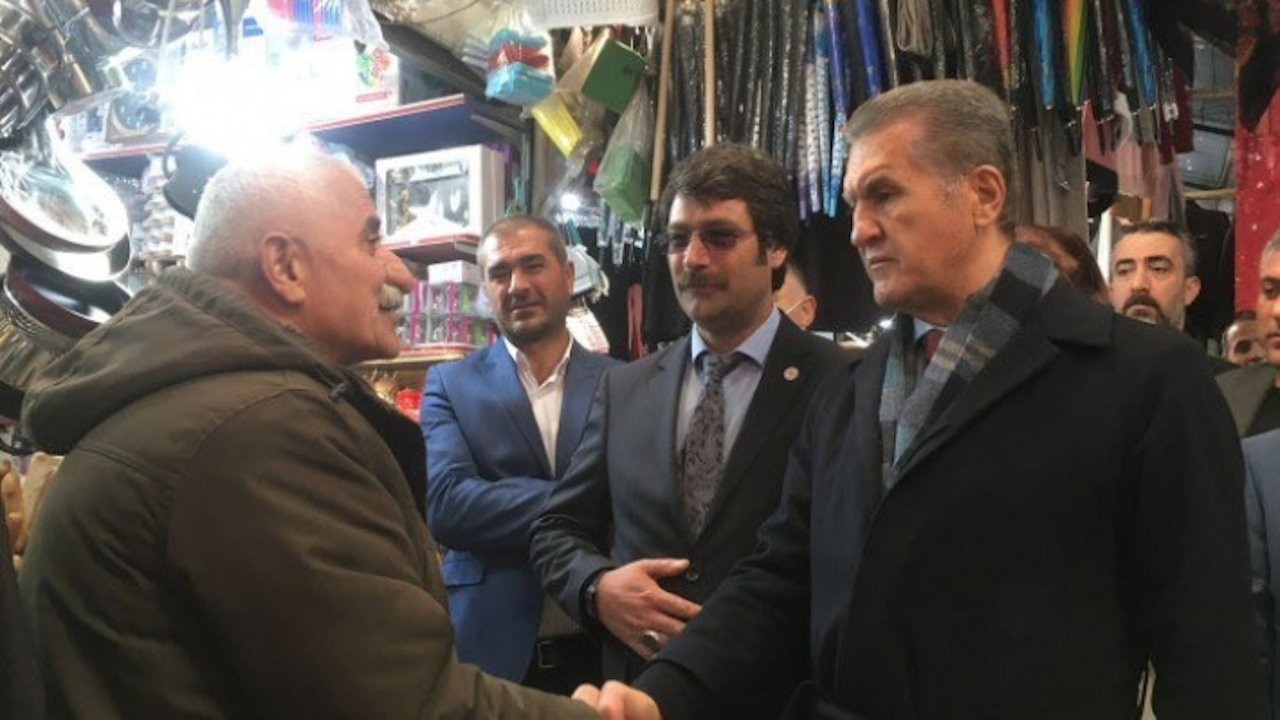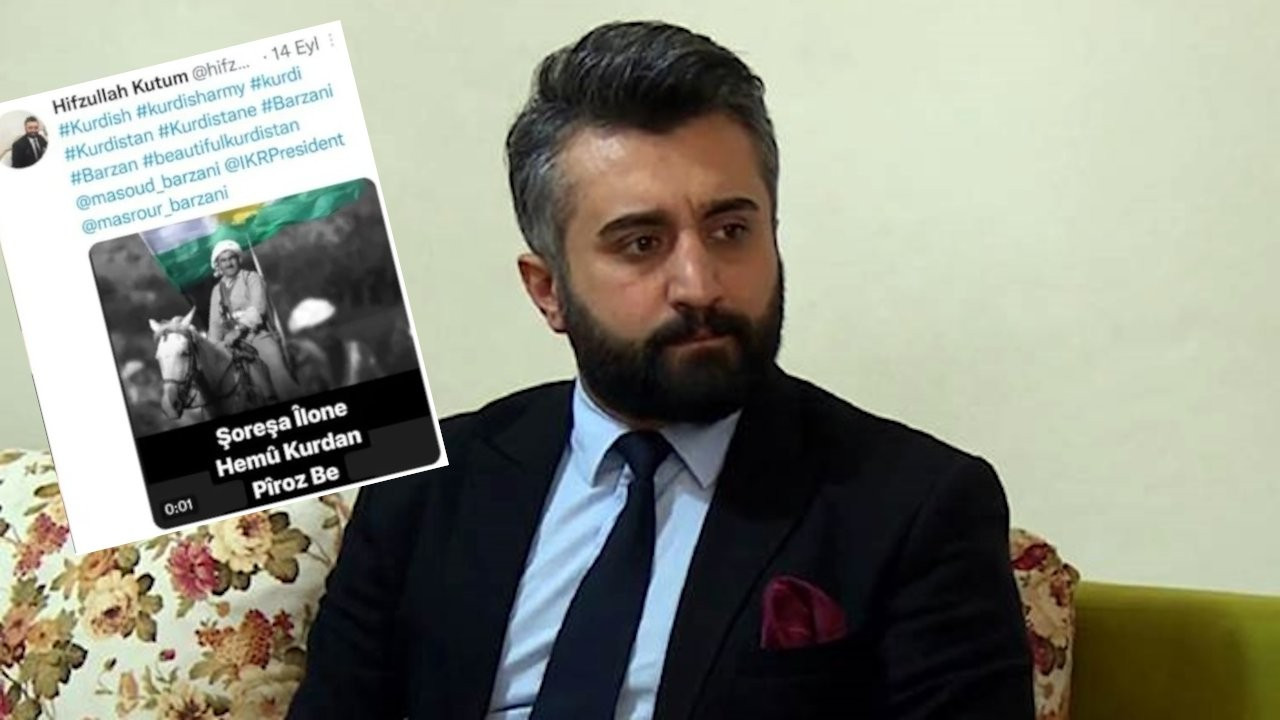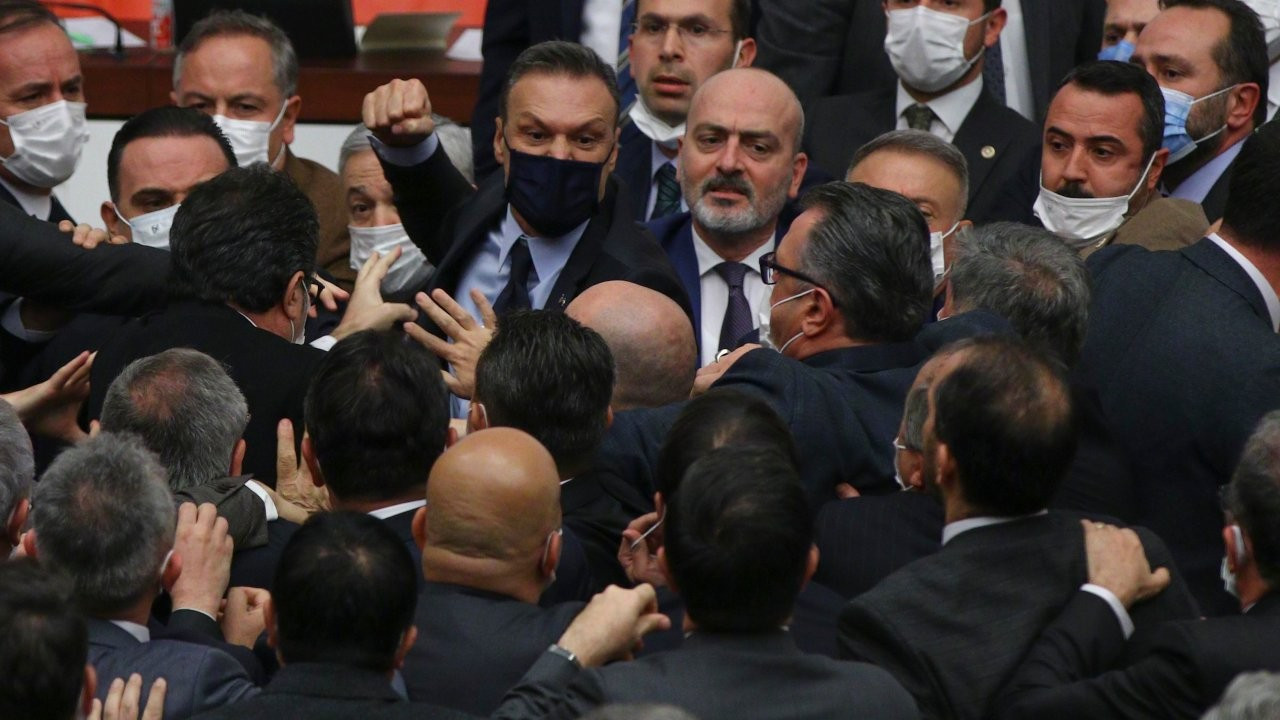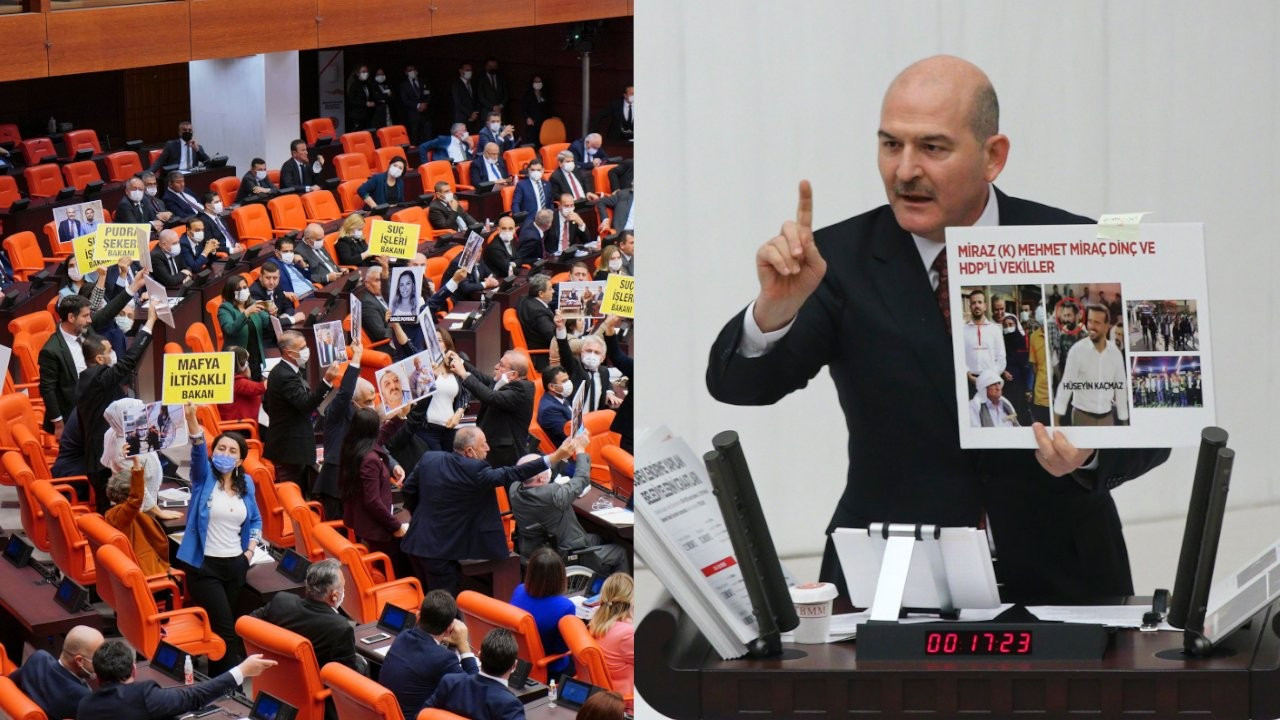HDP deputy prevented from speaking Kurdish in Turkey's parliament
HDP deputy Ayşe Sürücü was prevented from speaking Kurdish in Turkey's parliament. "My mother tongue is Kurdish. Why can't you tolerate Kurdish here?" Sürücü asked.
Duvar English
Peoples' Democratic Party (HDP) deputy Ayşe Sürücü was prevented from speaking Kurdish in Turkey's parliament on Dec. 8.
Sürücü was addressing parliament when she said that she wanted to say a few sentences in Kurdish.
"Speaking Kurdish, plays in Kurdish and Kurdish music are banned in this country," Sürücü said, prompting Deputy Parliament Speaker Sadi Süreyya Bilgiç to tell the deputy to "use a language that the General Assembly will understand."
As Sürücü continued to speak Kurdish, far-right Nationalist Movement Party (MHP) Group Deputy Chair Levent Bülbül asked Bilgiç to cut the deputy's speech.
"If you insist on continuing, I will have to turn off your microphone," Bilgiç told Sürücü.
The deputy parliament speaker then turned off the microphone and turned it back on when Sürücü switched to Turkish.
"Why can't you tolerate Kurdish here?" Sürücü asked.
"My mother tongue is Kurdish. You should tolerate it. We are Kurdish. Stop your enmity towards Kurds," she said.
HDP deputy banned from parliament sessions over 'Kurdistan' remarks
Also on Dec. 8, HDP deputy Nusrettin Maçin was banned from attending three parliamentary sessions over his use of the word "Kurdistan" in his speech.
"We will build Turkey's future. We will ensure the unity and fraternity of the people. We will come to power with the motto of democracy and peace for Turkey and freedom for Kurdistan," Maçin said, prompting ruling Justice and Development Party (AKP) Group Deputy Chair Mustafa Elitaş to ask deputy parliament speaker to intervene.
Maçin was subsequently handed the ban on attending three sessions.
HDP Group Deputy Chair Meral Danış Beştaş said that the penalty was unjust since "Maçin used Kurdistan as a geographic, cultural and historical term."
Bilgiç objected and said that the term was aimed at changing Turkey's unitary state structure.

 Kurdish man detained after calling Turkey's southeast 'Kurdistan'Human Rights
Kurdish man detained after calling Turkey's southeast 'Kurdistan'Human Rights Turkish court releases Kurdish academic arrested over 'Long live Kurdistan' postHuman Rights
Turkish court releases Kurdish academic arrested over 'Long live Kurdistan' postHuman Rights Tensions run high in Turkey's parliament, as deputies fight yet againPolitics
Tensions run high in Turkey's parliament, as deputies fight yet againPolitics Turkish Interior Minister Soylu yells at HDP MPs: Kurds hate you!Politics
Turkish Interior Minister Soylu yells at HDP MPs: Kurds hate you!Politics